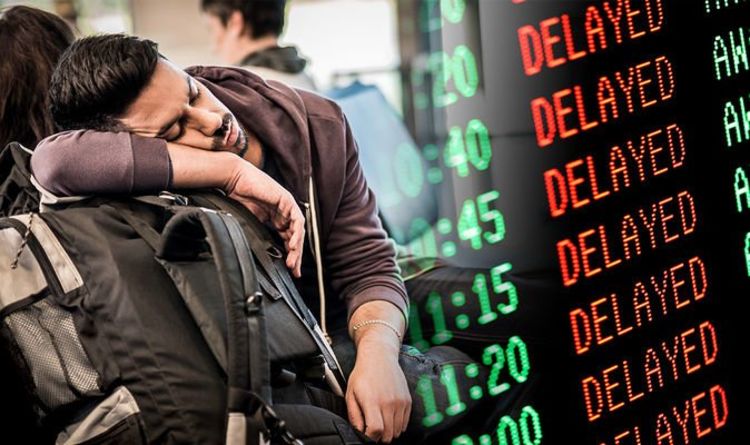Flight delays are a regrettable but typical aspect of flying. Delays can ruin your travel plans, regardless of whether they are brought on by weather-related cancellations, technical difficulties, or other unanticipated events. Nonetheless, in the United Kingdom, travellers are safeguarded by particular laws which allow them to pursue reimbursement in certain circumstances. This article examines the procedures for receiving compensation for a delayed flight in the United Kingdom with the help of experts at Flight Delay Solicitor Manchester. It covers important rules, qualifying requirements, filing a claim, along what to anticipate during the procedure.
Recognising Flight Compensation Regulations in the EU and the UK
EU Regulation 261/2004 applied (and is implied to continue to apply) in the United Kingdom concerning flight compensation for delays, other than those resulting from factors of extraordinary clinical nature, terrorist acts, military conflicts, natural disasters, war, quarantine and other similar situations. This rule guarantees passengers the right to reimbursement if, upon completion of certain requirements, a flight is delayed or cancelled. This legislation is vitally important to UK aviation law because even if the UK leaves the EU, it remains in place to ensure passengers’ security. Passengers are entitled to reimbursement, according to Regulation 261/2004 if a flight is delayed for more than three hours. This reimbursement is for any flight by an EU airline based in any airport in the UK or the EU or at which it departs from any airport in the UK or the EU. Coverage for non-EU airlines only provides for flights departing from EU or UK airports. The length of the delay & the course of the trip determines how much compensation is given.
When Do You Get the Right to Get Paid?
A few requirements need to be completed to qualify for reimbursement. The length of the delay is the most important component. You usually have a right to reimbursement if your flight lands at its destination at least three hours later than expected. This law, though, only takes effect in cases where the airline influenced the delay.
Typical justifications for filing a compensation claim involve:
- Technical problems about the aircraft
- Lack of crew
- Operational issues such as inadequate planning
Not all delays, nevertheless, are eligible for reimbursement. Airlines are not required to reimburse passengers for delays brought on by unusual events. Such are circumstances, such as the following, that the airline might not properly anticipate or prevent:
- Extreme weather
- Unrest in politics or threats to security
- Bird attacks or airport shutdowns
In these situations, airlines are nevertheless obligated to offer assistance, including meals, refreshments, as well as lodging if needed, even though passengers might not be compensated.
When Is It Possible to Get Compensation for a Weather-Related Flight Cancellation?
If inclement weather had kept your flight from departing, you could be able to claim compensation if the weather was not unusual (‘freak’ or ‘wholly extraordinary’). If air traffic control has set a limit on the total number of flights then reimbursing you for a flight cancelled because of inclement weather might not be possible. The airline is not liable for any damages caused by decisions created by air traffic control. The airline has no influence over decisions created through air traffic control, therefore they wouldn’t be held liable for any damages.
How to Make a Compensation Claim for a Flight Delay
In the UK, getting compensation for a cancelled flight is not too difficult. However, it’s crucial to compile all pertinent information and adhere to the right protocol. Here are the actions to follow:
1. Get Your Flight Information
Please make sure you’ve got all the required paperwork before submitting a claim. This comprises:
- The airline & flight number you are using: It’s what you’ll need to figure out your particular flight.
- A boarding card or proof of reservation: These records attest to your presence on the postponed flight.
- The duration of the hold-up: Knowing the precise amount of time you took to get to where you were going is crucial because it affects your eligibility.
2. Speak With the Airline Straightforwardly
The first step in obtaining compensation is reaching out to the airline immediately. For compensation claims, the majority of airlines provide electronic forms or specialised departments for customer service. When filing your claim, remember to include:
- Your entire name
- Date and flight number
- Cause of the delay, if any
- The duration of the wait at the destination
To handle your claim, certain airlines could ask for further paperwork, such as flight itineraries or receipts. To prevent processing delays, be ready to submit this data as soon as possible.
3. Await a Reaction
The airline must reply to your claim within an appropriate period after you file it. Some weeks may pass, according to the airline. If your claim is accepted, you will receive payment following EU Regulation 261/2004. If the airline denies your claim, they are required to give a good reason—typically citing unusual circumstances—for the denial. You can take your dispute further by using other channels if you think their denial was unfair.
Final Words
However, receiving compensation for a delayed flight is quite easy as long as you know what entitlements you have under EU Regulation 261/2004. Knowing whether or not you are eligible for compensation will help you spare yourself time and frustration. Do not hesitate to take the case further with the CAA or to obtain legal counsel if your claim is rejected. You may make sure that, if your vacation plans are cancelled, you are paid by staying aware and ready.
